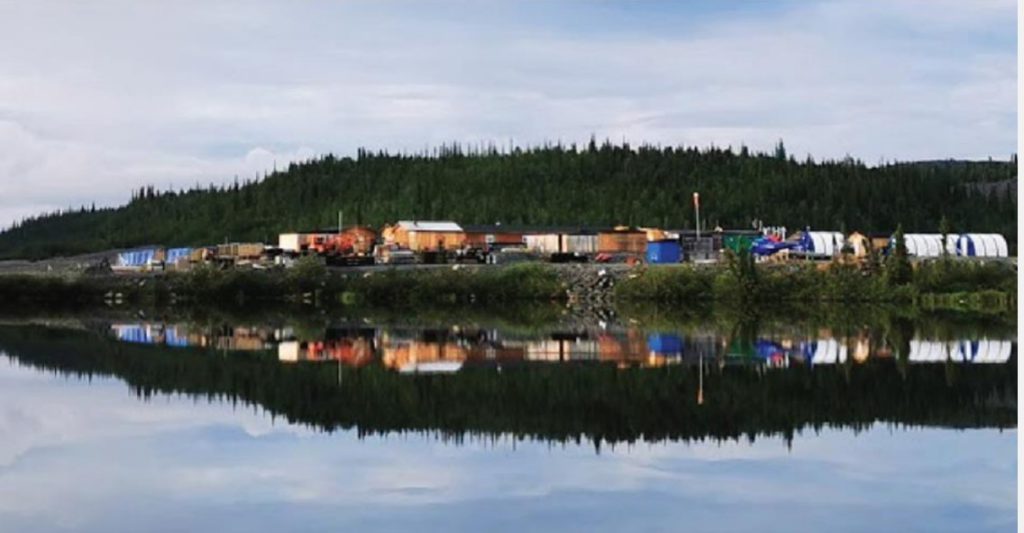Nighthawk shares soar on Northwest Territories gold project’s economics

Shares in Nighthawk Gold (TSX: NHK) jumped more than 20% after the company said its Colomac project in Canada’s Northwest Territories could pay for itself in about two years.
The open-pit project 200 km north of Yellowknife estimates annual production of 290,000 oz. of gold selling for $1,600 each to generate $464 million a year compared with estimated capital costs of C$654 million, the company said in a preliminary economic assessment released on Wednesday. The after-tax payback period is pegged at 2.1 years.
“The Colomac gold project has the potential to be a phenomenal asset,” Nighthawk president and CEO Keyvan Salehi said in a statement accompanying the study. “Only a handful of gold projects in the world that are owned by junior gold companies have similar favourable economics.”
Shares in Nighthawk rose nearly 23% on Wednesday afternoon in Toronto, valuing the company at C$73 million ($53.5m).
Colomac would have an after-tax net present value of C$1.2 billion at a 5% discount rate with an internal rate of return of 35% at the $1,600 per oz. gold price, the study showed. The corresponding figures would increase to C$2 billion at a 5% discount rate and 56%, based on a $2,000 per oz. gold price. The payback period would shrink to 1.5 years.
Toronto-based Nighthawk’s plan would see a 11.2-year mine life with peak production of 340,000 oz. gold in the second year. Other forecasts include annual sustaining capital costs of C$59 million, total annual cash costs of $673 per oz. and all-in sustaining cash costs per year of $828 per ounce.
Hub and spoke
The study envisions a phased open-pit development starting with a central hub of the Colomac main, Grizzly Bear and Goldcrest deposits followed by satellite deposits 11-28 km away. Of these, Cass, Kim and Damoti are to be open pit and underground mined, while Treasure Island is only underground.
Open pit extraction would focus on grades higher than 1.5 grams gold per tonne. Developing Colomac should take two years, the company said. Processing would be through a conventional milling, gravity and leaching circuit with gold recovery estimated at 96.3%. The company plans to spend C$103 million to install wind turbines and solar panels to generate 60% of the site’s power. The rest would be provided by diesel generators.
A resource update in February showed the combined open-pit and underground indicated resource rose to 70.4 million tonnes grading 1.5 grams gold for contained metal of 3.4 million oz., a 26% jump from 2.7 million oz. in last year’s estimate. The corresponding inferred figures are 24.3 million tonnes grading 2.2 grams gold for 1.7 million oz., a 27% gain from last year’s estimate of 1.3 million ounces.
Nighthawk said it is preparing a prefeasibility study for the project and evaluating pit sequencing, equipment sizing, camp configuration, an airstrip extension and infill drilling to upgrade inferred resources.
The deposits are open along strike and at depth, while the 930-sq.-km property has 27 historical gold “occurrences” that warrant exploration, Salehi said.
“We are expecting assay results from the highly prospective Leta Arm zone,” he said. “We are also planning to further drill the Cass, 24/7 and Damoti deposits, which we believe have the potential to expand mineralization beyond what has been outlined.”
{{ commodity.name }}
{{ post.title }}
{{ post.date }}




Comments